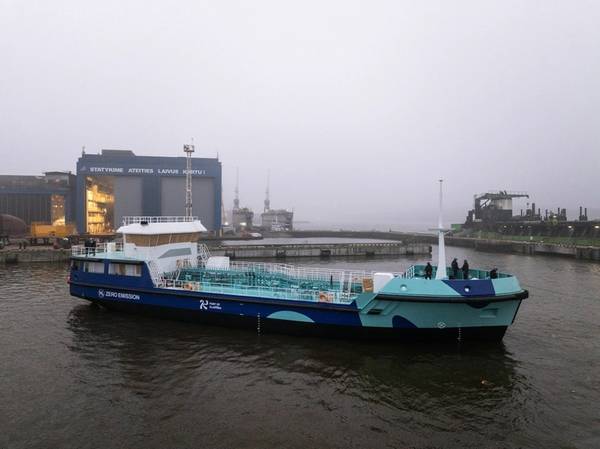
The hull of Lithuania’s first green hydrogen and electricity-powered ship has been launched by the Klaipėda State Seaport Authority.
The tanker will accept waste from vessels entering the port when it enters operation later this year.
The tanker’s main function is to collect storm water, sewage, sludge and garbage, and it will be equipped with special tanks and a modern rainwater treatment plant that will allow the treated water to be transferred to the city’s sewage treatment plants. The tanker will be ready to work around the clock and collect up to 400 cubic metres of liquid waste.
The tanker is 42 metres long and 10 metres wide. The ship’s power system will consist of two electric motors powered by 2,000 kWh batteries and a hydrogen fuel cell system. Depending on the intensity of the work, the tanker will be able to operate in the port of Klaipėda for up to 36 hours without additional power charging.
This ship building project with a total value of €12 million ($12.5 million) has been commissioned by the Port Authority and is being built by West Baltic Shipyard together with Baltic Workboats under a joint operating agreement.



